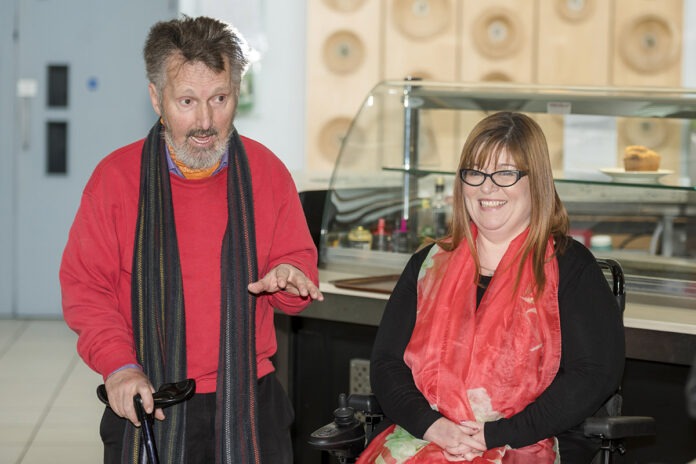An Ennistymon disability activist, who is hoping to become the first disabled woman elected to the next Seanad, has proposed new measures to help people with additional needs to live independently in their own community.
Ann Marie Flanagan has been nominated by Independent Living Movement Ireland and Irish Deaf Society under the Administrative Panel and hopes to be the first elected Disabled woman Senator to the next Seanad Éireann.
In an interview with The Clare Champion, Ms Flanagan said a new cost of disability allowance based on need independent of the statutory disability payment is needed as many working disabled people on low incomes are living in deprivation.
Commenting on a 2021 Indecon Report, which was published before the recent cost of living increases, she noted this review identified people with disabilities face additional costs of between €9,000 and €11,000 annually to pay for transport, heating, and equipment.
“There should be a non-means tested cost of disability payment. The current disability allowance is paid to those who can’t work because of a disability. A lot of people with disabilities can and want to work.
“Because the disability allowance is attached to so many medical benefits, particularly the medical card, it prevents some people from taking a chance to take up employment and give up this allowance.
“If there was a cost of disability payment and the medical card was given to people based on their medical needs, rather than an income, it would facilitate so many people to move into employment.”
Highlighting the needs of deaf people, Ms Flanagan pointed out there is a lack of adequate sign language interpreters who have to be booked months in advance and there is only one course in Trinity College to train as an interpreter.
“I was talking to an interpreter who said if you don’t learn sign language in secondary school, it is a brand new language for people with hearing to train, which can be a deterrent.
“Irish sign language needs to be introduced into schools so that all children can learn it and deaf children can communicate with each other. This would encourage more people to go forward to university and train as a sign language interpreter.
“It is our third language in this country, which people don’t realise,” she said.
With less than three weeks to go before the Seanad elections, Ms Flanagan is busy canvassing people through meetings, email communication, and public statements.
Having played an active role in the Equality Not Care campaign for a No vote in the 42B referendum, which was decisively rejected by the Irish people, Ms Flanagan said this has led to a recognition of her skills to represent marginalised voices.
“After working on the Equality Not Care campaign, people are familiar with this campaign and are familiar with who I am and my work. I am always the optimist.
“The electorate has an opportunity to support me to become the first disabled woman to be elected to the Seanad with a background in law and policies,” she said.
She said disabled people should become a core part of the national housing strategy.
Frustrated by the continuous retheoric about improving disability services, Ms Flanagan stressed if the government was serious about improving the lives of people with disabilities,it should deliver a rights-based approach, which has been sustainably delivered in other countries and was promised by various political parties during the recent General Election.
Stressing the right of people with disabilities for independent living, she pointed out that the unacceptable practice of keeping young Clare people with high support needs in nursing homes is a breach of their rights under international law.
As Fianna Fáil and Fine Gael continue their negotiations on the formation of the next government, Ms Flanagan has called for a radical new approach to the provision of services for people with disabilities.
She believes the new Programme for Government should provide the necessary resources to allow these young people in nursing homes to lives in their own homes in their locality.
East Clare correspondent, Dan Danaher is a journalism graduate of Rathmines and UL. He has won numerous awards for special investigations on health, justice, environment, and reports on news, agriculture, disability, mental health and community.



